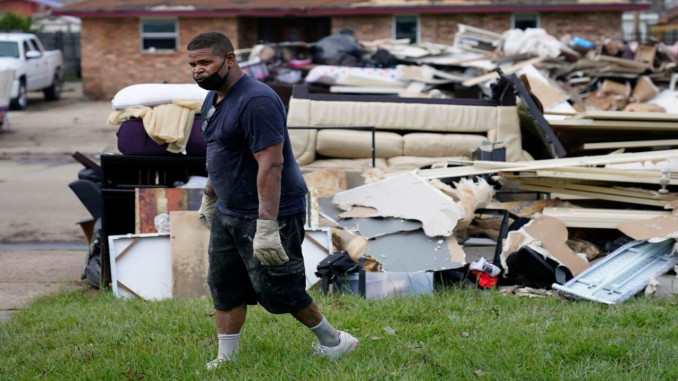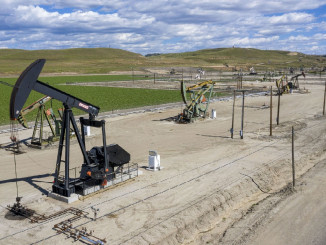
More than one month after Hurricane Ida rampaged from the Gulf Coast to the northeast, the trail of destruction and its effects on people’s lives is still visible for all to see. In Louisiana, small towns around New Orleans and tens of thousands of families in the coastal region are still suffering from this disaster. In some cases, electricity and water services have still not been repaired. In others, houses are still destroyed, while cars still sit on top of one another or covered with marsh grass. Dozens of coffins that were washed out of cemeteries lay in the streets or vacant lots. In southeastern Pennsylvania, in the counties surrounding Philadelphia, hundreds had their homes destroyed or severely damaged by flooding, and were still displaced weeks after the hurricane hit. In New Jersey, which sustained at least thirty deaths, damage is still being repaired and many residents are still struggling to get back on their feet. In Elizabeth, just south of Newark, flooding killed three people and destroyed three hundred units in a low-income housing development. Residents saw many of their possessions destroyed and have faced uncertain living conditions ever since. As always with such disasters in the United States, working class famlies are hit hardest, and Black families hardest of all. New Jersey, one of the highest rent states in the nation, had few affordable housing options even before the storm, leaving most residents with nowhere to go.
The lingering effects of Hurricane Ida reveal once again how unprepared our system is for natural disasters. And if in the United States, the wealthiest country on Earth, our system can’t even get displaced coffins removed from public places, then imagine the effects of climate change on poorer countries. The lingering effects of Hurricane Ida once again demonstrates the failure of the capitalist economy to meet even basic human needs. It’s time for this system to be replaced with a system based on the needs of all, not the profits of a few.




